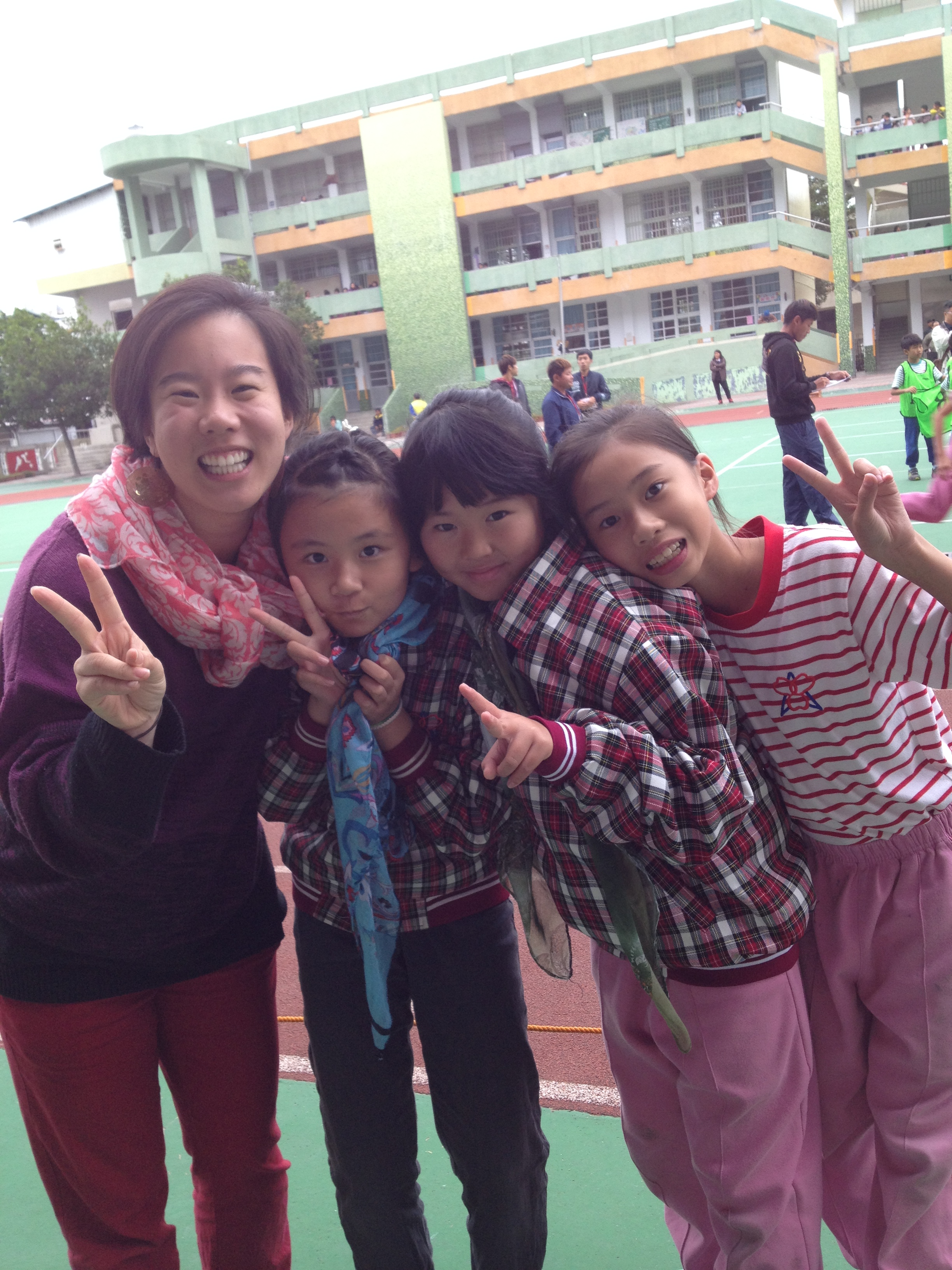Lin Wang, an Arizona State University graduate, won a Fulbright grant and is working as an English teaching assistant in Taiwan.
Living abroad has been a challenge, but Wang, who is from Gilbert, has been moved by the deep kindness she’s experienced.
“I have been shown so much kindness here I started crying one day,” said Wang, whose majors at ASU were chemistry and dancefrom the Herberger Institute for Design and the Arts and School of Mathematical and Statistical Sciences.
“Taiwanese people are so nice and feel responsible for the earth and other people. For example, in our driving test, we were required to answer questions such as ‘Why should you remove debris from the road?’ and the answer would be, ‘so that the safety of other people is not compromised.’
“My heart feels so happy to know there are people who take responsibility for their actions, and have hearts full of kindness and selflessness.”
Wang answered some questions about her Fulbright experience:
Question: Can you give an overview of what you’re doing in Taiwan?
Answer: I am an English teaching assistant at an elementary school in Taidong, Taiwan. I teach fourth grade and fifth grade from 8 a.m. to 4 p.m. Mondays through Fridays. Often, I will read stories at the local story-telling house to children and during the first semester I had a dance team that performed for the school’s sports day.
Q: What is a typical day like for you?
A: I empty my dehumidifier (because Taiwan is VERY HUMID) — often using the water to flush the toilet. Then I pick out my outfit — often something light for the hot weather and with a lot of coverage, for blocking the mosquitoes — and then I hop onto my scooter to get breakfast. We all have scooters here. Scooters are the preferred choice of transportation over cars and large vehicles. Taiwan is a small space so they can’t afford to have too many big trucks taking up all the parking spaces.
For breakfast I will eat oatmeal with honey and fruit, but there are really yummy traditional Taiwanese breakfast places all along my way to school.
When I get to school, I go through lesson plans with my leading English teachers and then co-teach four to five classes, all 40 minutes long. Lunch is served at school, always with rice, vegetables and a meat dish. It’s really healthy and quite delicious.
An interesting fact about Taiwanese trash: they split their trash into: compost, recyclables, and trash for the landfill. So at school every 20 feet there is a compost bucket where people throw their leftovers from lunch into. It’s very sustainable because they use the compost for fertilizer or to feed pigs. And you have to bring your own bowl and utensils — no plastic utensils: another sustainable act.
At 4 p.m. I am FREE! I will walk around the track for around 30 to 40 minutes or chat with the physical education teacher who I have become close friends with. At 5 p.m., I scooter 20 minutes over to Zhiben, where the Taidong University is located. At the university, I swim for around 40 minutes.
Then I unwind at home with music, dancing, ukulele playing or just crashing from exhaustion.
Q: What do you do on the weekends?
A: I will either go to the beach, travel around Taiwan, scooter up the coast, stay home to clean or hang out with local friends I have made.
ASU grad and Fulbright winner Lin Wang is teaching English in Taiwan this year.
Q: Have there been any challenges?
A: Yes. Many challenges. My first semester was a struggle. I wanted to go home many times. But the students made me so happy, and they just brought so much joy into my life that I reminded myself, things will get better.
Q: What’s next for you, after you return?
A: I plan on working a year as a barista (something I’ve always wanted to do!) while dancing and training my body before I go back to school. This year has been very revealing in what I want to do — to dance professionally and to be a high school dance teacher.
Q: What would you tell someone who is contemplating applying for a Fulbright?
A: I would tell them, it is a crazy year, you will pull out some hairs, you will miss home, you will struggle, you will sweat and probably cry at some point. But if you are someone who wants to challenge yourself and try living in another country, then apply. You will grow and you will learn so much about yourself and experience another culture drastically different from America. But if you never wanted to live out of America, don’t apply. If you only want to apply for the name brand of Fulbright, don’t apply. People can see through a mask, especially students.
More Local, national and global affairs
How a retired public affairs instructor landed in the Cactus League Hall of Fame
What does a retired Arizona State University School of Public Affairs faculty member have in common with four Major League Baseball players and managers who, combined, hit 889 home runs, registered 3…

ASU works with Freeport-McMoRan to strengthen supply of a critical mineral — copper
Copper is a key part of the Arizona economy — and Arizonans’ lives. In elementary school, Arizonans learned that copper was one of the original 5 C’s, the cornerstones of the state's…

Feeding our food banks: ASU helps pantries better serve the state
Leaders from the state’s largest food banks gathered in a small, packed room at St. Mary’s Food Bank on Feb. 9 to learn about a tool that will dramatically expand their capacity to fight hunger…

